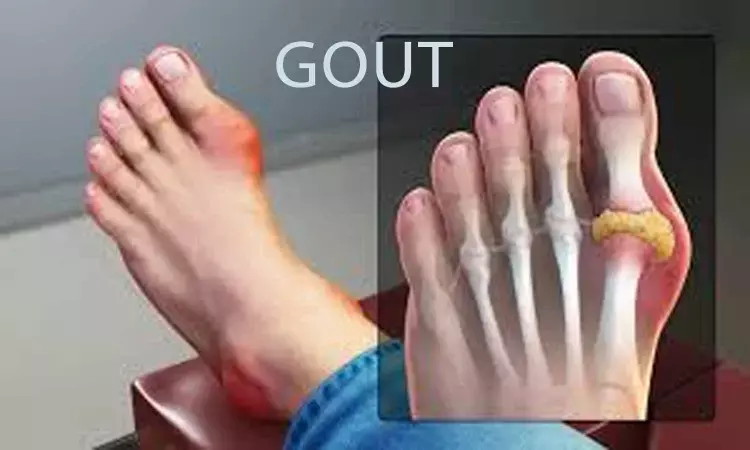- Home
- Medical news & Guidelines
- Anesthesiology
- Cardiology and CTVS
- Critical Care
- Dentistry
- Dermatology
- Diabetes and Endocrinology
- ENT
- Gastroenterology
- Medicine
- Nephrology
- Neurology
- Obstretics-Gynaecology
- Oncology
- Ophthalmology
- Orthopaedics
- Pediatrics-Neonatology
- Psychiatry
- Pulmonology
- Radiology
- Surgery
- Urology
- Laboratory Medicine
- Diet
- Nursing
- Paramedical
- Physiotherapy
- Health news
- Fact Check
- Bone Health Fact Check
- Brain Health Fact Check
- Cancer Related Fact Check
- Child Care Fact Check
- Dental and oral health fact check
- Diabetes and metabolic health fact check
- Diet and Nutrition Fact Check
- Eye and ENT Care Fact Check
- Fitness fact check
- Gut health fact check
- Heart health fact check
- Kidney health fact check
- Medical education fact check
- Men's health fact check
- Respiratory fact check
- Skin and hair care fact check
- Vaccine and Immunization fact check
- Women's health fact check
- AYUSH
- State News
- Andaman and Nicobar Islands
- Andhra Pradesh
- Arunachal Pradesh
- Assam
- Bihar
- Chandigarh
- Chattisgarh
- Dadra and Nagar Haveli
- Daman and Diu
- Delhi
- Goa
- Gujarat
- Haryana
- Himachal Pradesh
- Jammu & Kashmir
- Jharkhand
- Karnataka
- Kerala
- Ladakh
- Lakshadweep
- Madhya Pradesh
- Maharashtra
- Manipur
- Meghalaya
- Mizoram
- Nagaland
- Odisha
- Puducherry
- Punjab
- Rajasthan
- Sikkim
- Tamil Nadu
- Telangana
- Tripura
- Uttar Pradesh
- Uttrakhand
- West Bengal
- Medical Education
- Industry
Febuxostat initiation not associated with prolonged acute gout flares: Study

China: Febuxostat initiation during an acute gout flare does not lead to prolonged duration of acute flares, finds a recent study. According to the study, published in the journal Rheumatology, patients who were administered febuxostat had a lower serum uric acid (sUA) levels and a lower rate of recurrent gout flares.
Gout is a form of arthritis that results from the deposition of monosodium urate (MSU) crystal. For gout patients, urate-lowering treatment (ULT) is essential. Generally, ULT initiation is recommended after the resolution of acute flare to avoid prolongation of symptoms. The incidence of gout flares is positively associated with reduction of sUA in the first few months after initiating ULT.
Previous small randomized clinical trials have shown that initiating allopurinol treatment during an acute gout flare did not prolong painful gout flares. Febuxostat (40 mg/day) was found to have a superior urate-lowering effect compared with limited allopurinol doses (maximum 200–300 mg/day).
Presently, no studies have been published on the febuxostat initiation of acute gout flares. To fill this knowledge gap, Yanying Zhang, University of Chinese Medicine, Shenzhen, and colleagues aimed to to determine whether initiation of febuxostat during an acute gout flare prolongs the current episode.
For the purpose, the researchers performed a randomized, placebo-controlled, single-blinded, multicentre trial. The trial included 140 patients with acute gout flares within 72 h. They were randomized in the ratio 1:1 to the placebo (n=70) and febuxostat (40 mg/day) groups (n=70).
All patients were administered diclofenac (150 mg/day) for 7 days and then open-labelled on the eighth day. Febuxostat 40 mg daily and diclofenac 75 mg daily were administered from day 8 through 28 for the remission period. The dose of diclofenac was 150 mg/day before remission in both arms, and the original protocol was maintained until remission. The primary outcome was 'days to resolution'.
Key findings of the study include:
- The mean days to resolution was 5.98 days [median 7.00, interquartile range (IQR) 2.45 days] for the placebo and 6.50 days (median 7.00, IQR 3.67 days) for the febuxostat group.
- The rate of resolution within 7 days was 84.38% for the placebo group and 76.92% for the febuxostat group.
- There were no statistically significant differences in joint pain, swelling, tenderness and erythema scores at days 1, 3, 5 and 7.
- The mean serum uric acid levels were 507.54 and 362.62 μmol/l for the placebo and febuxostat group, respectively, on day 7.
- The rate of recurrent gout flares was 10.00% for the placebo group and 6.56% for the febuxostat group from day 8 through 28.
"Our findings show that initiation of febuxostat administration during an acute gout flare did not prolong the duration of acute flares," concluded the authors.
The study titled, "Initiation of febuxostat for acute gout flare does not prolong the current episode: a randomized clinical trial," is published in the journal Rheumatology.
DOI: https://academic.oup.com/rheumatology/advance-article/doi/10.1093/rheumatology/keaa908/6065952
Dr Kamal Kant Kohli-MBBS, DTCD- a chest specialist with more than 30 years of practice and a flair for writing clinical articles, Dr Kamal Kant Kohli joined Medical Dialogues as a Chief Editor of Medical News. Besides writing articles, as an editor, he proofreads and verifies all the medical content published on Medical Dialogues including those coming from journals, studies,medical conferences,guidelines etc. Email: drkohli@medicaldialogues.in. Contact no. 011-43720751


